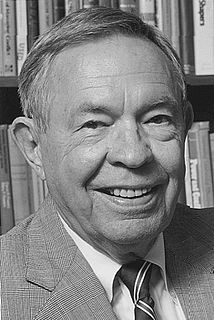Цитата Э. О. Уилсона
Истинный характер возникает из более глубокого колодца, чем религия. Это интериоризация моральных принципов общества, дополненная теми принципами, лично выбранными индивидуумом, достаточно сильными, чтобы выдержать испытания одиночества и невзгод. Принципы объединяются в то, что мы называем целостностью, буквально интегрированным я, в котором личные решения кажутся хорошими и верными. Характер, в свою очередь, является постоянным источником добродетели. Он стоит сам по себе и вызывает восхищение у окружающих.
Темы цитат
Восхищение Возникает
невзгоды
Расширенный призыв
Характер
Выбранные
решения
Глубже
Терпеть
Достаточно
выстоять
Воодушевляет Чувствовать
себя
хорошо
Подтянутый
Хороший
Индивид
Интегрированная
Целостность
Сама по себе
Буквально
мораль
Моральные принципы
Другие
Личные
личные решения
Личные
принципы
Религия
Я
Общество
Одиночество
Источник
стоит
достаточно сильно,
чем те
, кто
прошел
вместе
испытания
Истинный
Истинный
поворот
Колодец
добродетели
Связанные цитаты
Честность — это то, что вы делаете за закрытыми дверями или когда думаете, что никто не смотрит. Целостность — это истинная сущность того, кто вы есть, ваших убеждений и ваших ценностей. Репутация — это общественное мнение о том, кто вы есть. Это то, как другие видят вашу честность или твердые моральные принципы.
Иногда мы создаем собственные принципы, а иногда принимаем чужие принципы или комплексные принципы, такие как религия и правовые системы. Хотя не обязательно плохо использовать чужие принципы — трудно придумать свои собственные, и часто много мудрости вложено в уже созданные — принятие заранее подготовленных принципов без долгих размышлений подвергает вас риску непоследовательности. со своими истинными ценностями.
Я думаю, что моя сильная решимость добиться справедливости исходит из очень сильной, динамичной личности моего отца ... Я редко когда-либо встречал человека более бесстрашного и мужественного, чем мой отец ... Что меня больше всего восхищает в моем отце, так это его подлинно христианский характер. Он человек настоящей честности, глубоко приверженный моральным и этическим принципам. Он добросовестный во всех своих начинаниях... Если бы у меня была проблема, я всегда мог бы позвонить папе.
Характер получается из нашего ежедневного противостояния искушениям, из нашего регулярного отклика на зов долга. Она формируется, когда мы учимся лелеять принципы и подчиняться самодисциплине. Характер — это сумма всех маленьких решений, маленьких поступков, ежедневных реакций на выбор, который нам предстоит сделать. Персонаж не получается мгновенно. Мы должны лепить, ковать и выковывать из себя характер. Это далекая цель, к которой нет короткого пути.
Бедняки-рабы неспособны ни к каким принципам: джентльмены могут быть обращены к истинным принципам временем и опытом. Люди среднего уровня обладают достаточным любопытством и знаниями, чтобы сформировать принципы, но недостаточно, чтобы сформировать истинные принципы или исправить какие-либо предубеждения, которые они могли впитать. в Англии.
Бойскауты Америки отстаивают набор принципов. Эти принципы обладают большой выносливостью. Ценности, которые вы изучаете как разведчик, подобны компасу. Они могут помочь вам найти дорогу в труднопроходимой, а иногда и неизведанной местности. Принципы Скаутинга дают вам представление о том, что важно. Я чувствую, что многим обязан бойскаутам как лично, так и профессионально.
То, что человек говорит и делает в обычные моменты, когда никто не смотрит, раскрывает его истинный характер больше, чем грандиозные поступки, предпринятые в центре внимания. Наш истинный характер раскрывается в нормальных, последовательных, повседневных отношениях и поведении, а не в самосознательных словах или поступках или редких актах морального мужества.
Я считаю, что честная жизнь — самый фундаментальный источник личной ценности. Я не согласен с популярной литературой об успехе, в которой говорится, что самооценка — это в первую очередь вопрос мировоззрения, отношения — что вы можете настроить себя на душевный покой. Душевный покой приходит тогда, когда ваша жизнь находится в гармонии с истинными принципами и ценностями и никак иначе.
Истинная честь — это привязанность к честным и благотворным принципам и хорошей репутации; и побуждает человека делать добро другим и даже всем людям за свой счет, боль или опасность. Ложная честь является притворством для этого характера, но делает вещи, которые разрушают ее: И злоупотребление честью называется честью у тех, кто этим добрым словом присваивает себе честь действовать низко, опрометчиво или глупо.

































